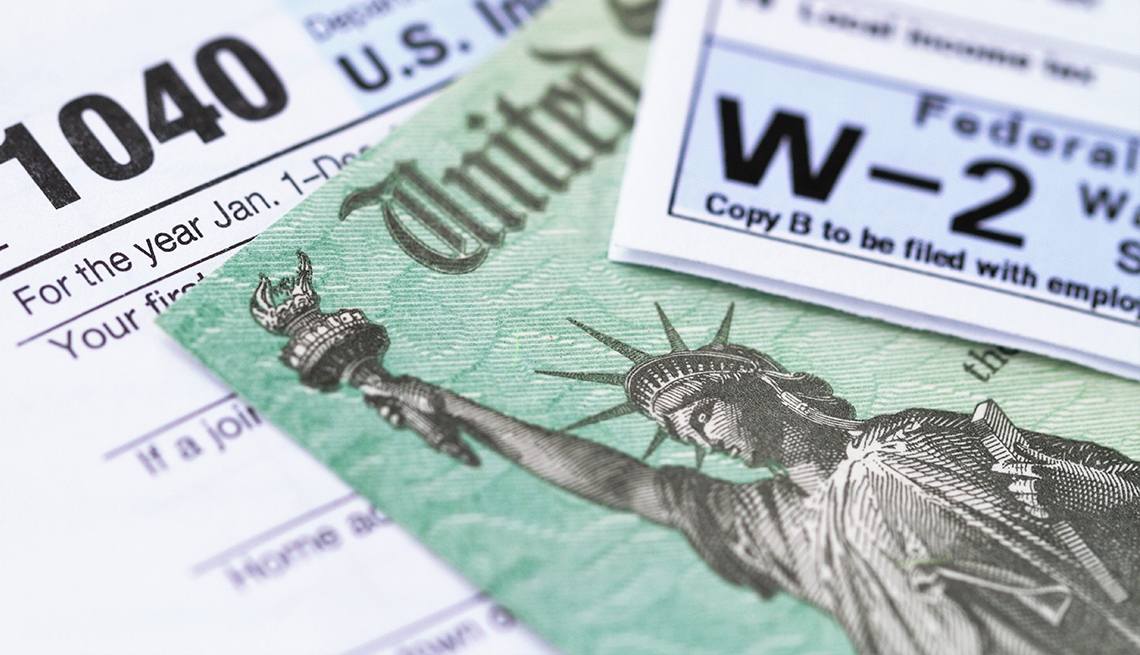Millions of taxpayers in the United States are waiting for their tax refunds, which, according to the Internal Revenue Service (IRS), will arrive in smaller amounts compared to what was received in previous years.
Many experts have said, including the tax agency, that this is in response to the fact that there is no more stimulus money to go around, since the crisis that caused the Covid-19 pandemic is over. However, this is not the only reason why refunds are lower.
To help you understand why your refund doesn’t match what you expected, TurboTax has done a report to explain the main reasons why tax refunds will be lower this 2023 (and which correspond to 2022 income).
1. Tax benefits provided by the American Bailout Plan have disappeared.
The U.S. Rescue Plan was approved to help families who were bitterly affected by the economic ravages of the Covid-19 pandemic. Stimulus checks were approved, and the criteria for some tax credits, such as the Child Tax Credit (CTC), were expanded so that more families could qualify. Still others were made fully refundable, which would mean that it was not necessary to file a tax return to qualify.
With the end of the Covid-19 pandemic emergency, these economic stimuli ended, which has meant a hit in the pocketbook for those who have received or are about to get their tax refunds.
Those benefits include:
– Child tax credit: Changed from $3,600 in tax year 2021 to $2,000.
– Child and Dependent Care Tax Credit: Changed from $8,000 for two or more children (up to $4,000 for one child) in tax year 2021 up to $2,100 for two or more children ($1,050 for one child) in 2022.
-Childless Earned Income Tax Credit: Expanded for childless taxpayers and eliminated age limits in tax year 2021, but for tax year 2022 the age limits return, so you may not qualify if you are under 25 or over 65.
-Recovery refund credit: Tax year 2021 was the last year you could claim the catch-up rebate credit if you are eligible and did not receive the third stimulus sent in 2021.
-Family and sick leave credits for self-employed: The American Recovery Plan extended the refundable sick leave and family leave tax credits through tax year 2021 for eligible small business owners and self-employed individuals, but the credit expired at the end of September 2021.
-Cash charitable donations: COVID relief was extended through tax year 2021 and allowed you to deduct up to $300 in cash donations ($600 for married filing jointly) on your 2021 taxes if you claimed the standard deduction, but you can no longer deduct contributions if you claim the standard deduction.
2. The IRS made adjustments to your refund after you filed your taxes.
This occurs when the amounts that other sources reported to the Internal Revenue Service and what appears on your tax return do not match. According to TurboTax, some situations that cause adjustments to be made to tax refunds are:
-Missing income, such as small interest reported on a Form 1099-INT, or that you failed to include a Form W2;
-Numbers that you have carried over; – Adjustments to certain deductions
-Adjustments to certain deductions or credits.
3.- Reimbursement adjustments are made as part of the Treasury Offset Program.
“This program oversees the collection of past due invoices owed to federal and state agencies. Various federal and state agencies, such as the Department of Education and Child Support, have outstanding debts that must be collected. These bills are deducted from tax refunds and reduce the amount deposited as a refund. However, not all bills are subject to a tax offset. Bills from private lenders, such as late car payments or unpaid cell phone bills, will not reduce your refund,” explains TurboTax.
4.- Adjustment for tax owed
If you owe taxes from a previous tax year to the IRS, they will be deducted from any eligible tax refund for the current year. In fact, the IRS will collect federal taxes you owe from a prior year before any other federal or state agency under the Treasury Offset Program.

